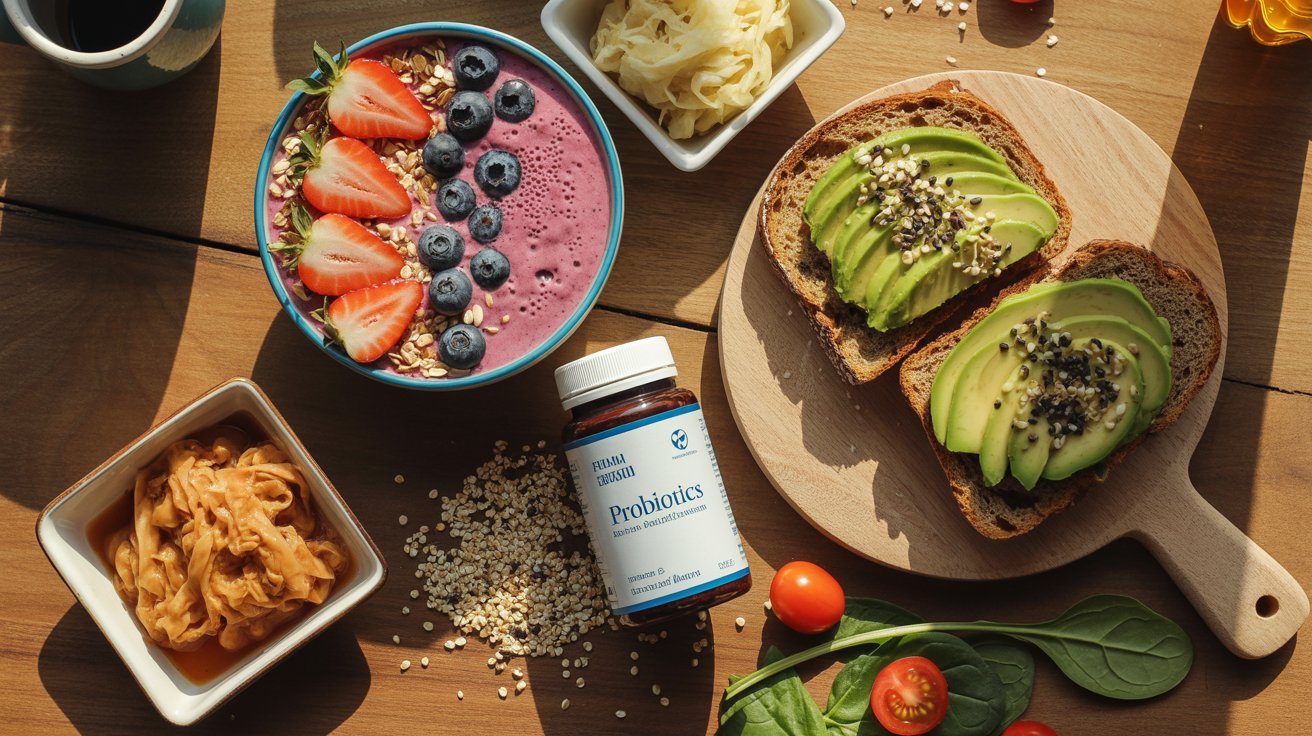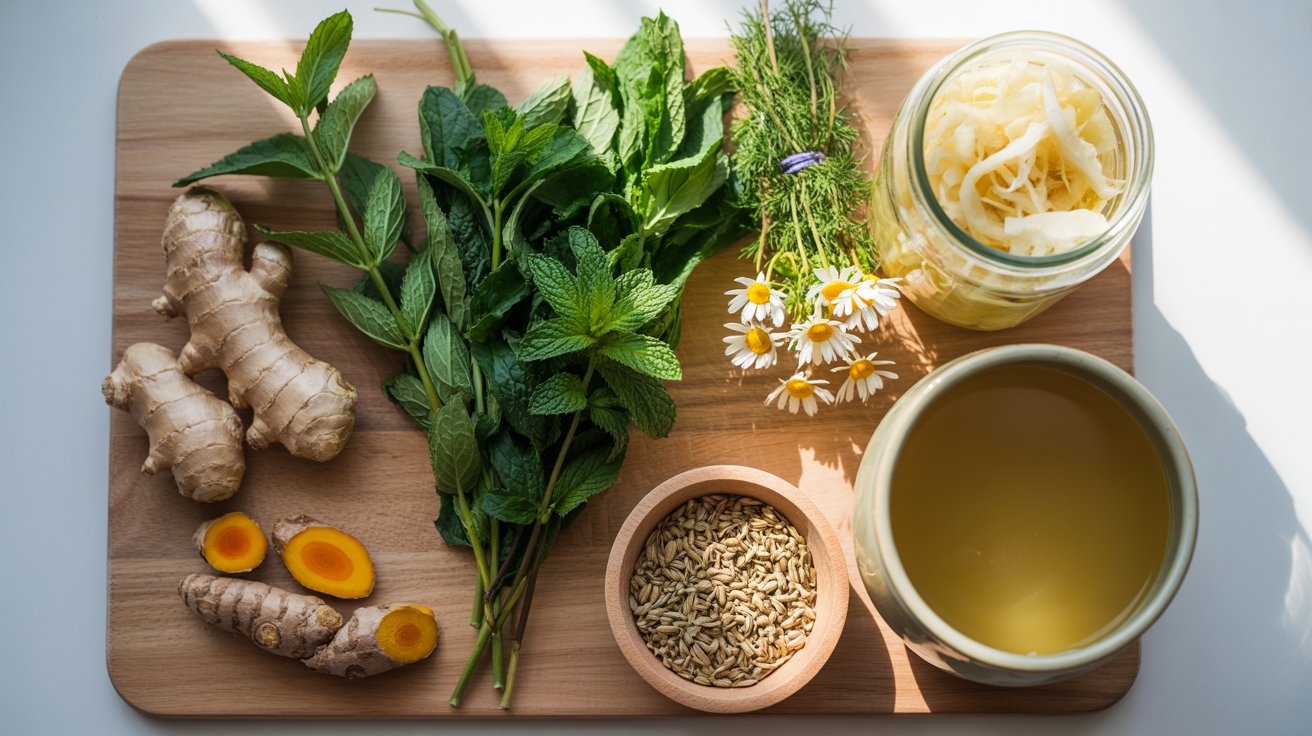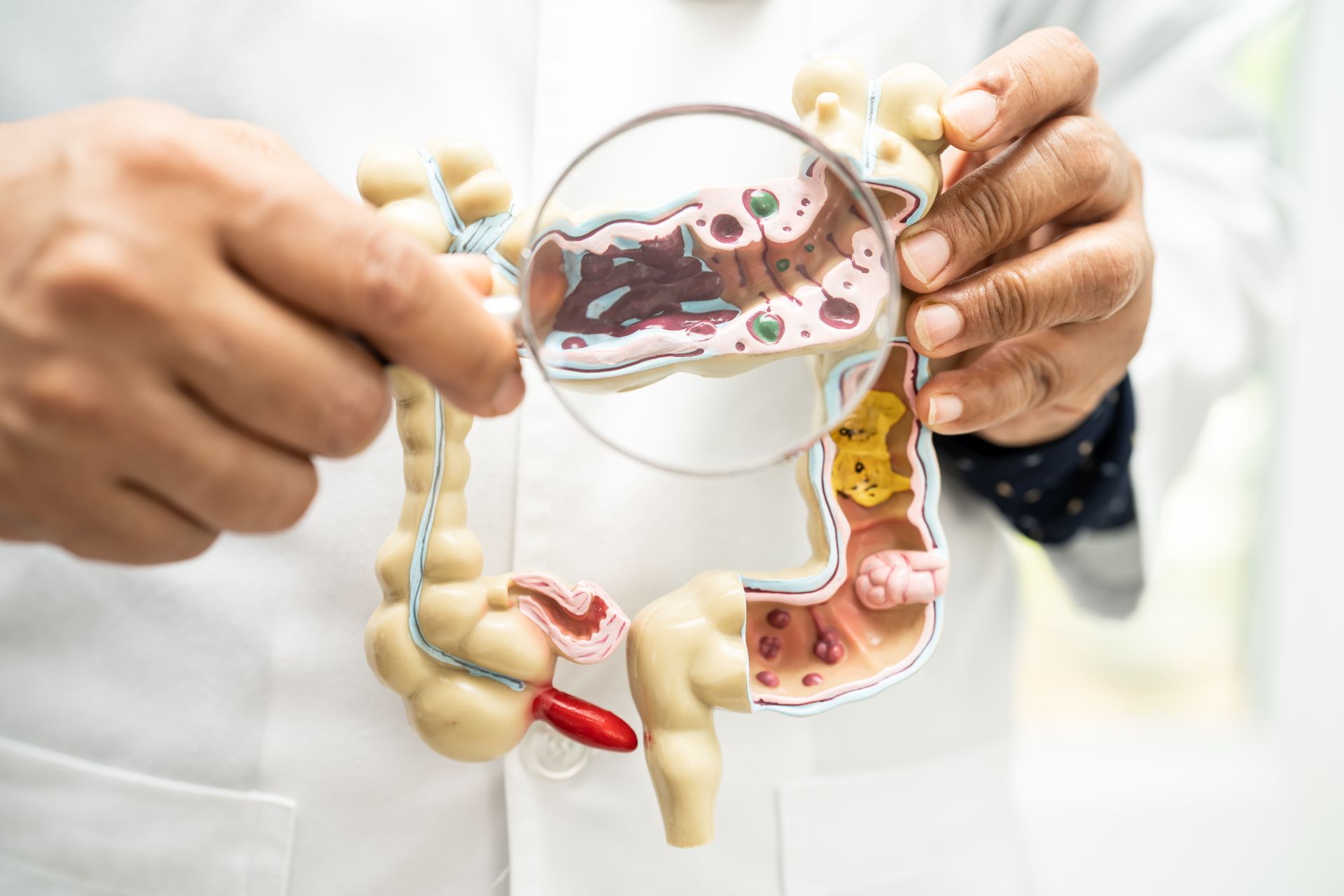When it comes to maintaining gut health, fats are often misunderstood. Many of us have been taught to avoid fats, especially the unhealthy types, but what if I told you that the role of fats in gut health is crucial in keeping our stomach and digestion working smoothly?
We’ll explore the role fats play in gut health, debunk some myths, and highlight how you can make fat work for you in your quest for a healthier gut.
Why Fats Are Important for Good Gut Health
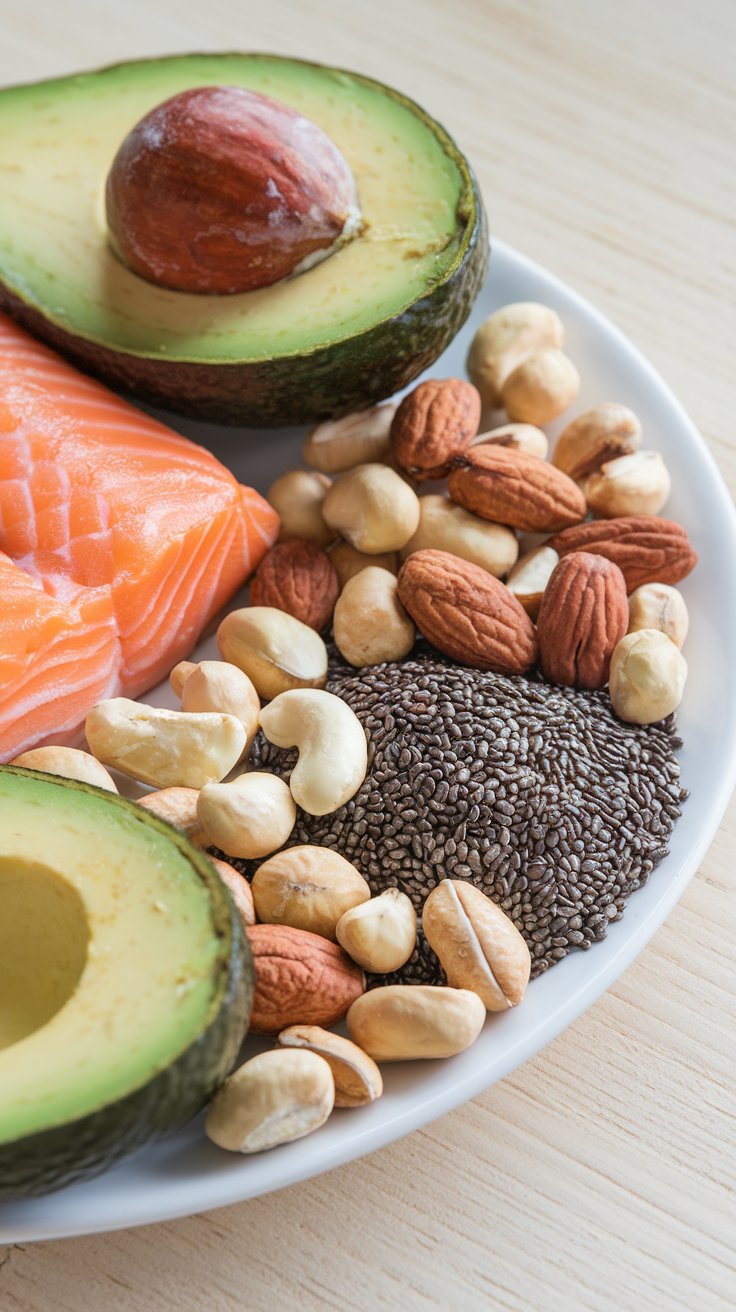
You might have heard that fats can contribute to inflammation and digestive issues, but the truth is, healthy fats are essential for many bodily functions—including gut health. Here’s why:
1. Fats Help Absorb Nutrients
Healthy fats, especially omega-3 fatty acids, play a vital role in the absorption of fat-soluble vitamins like A, D, E, and K.
These vitamins are crucial for maintaining healthy gut lining and immune function. Without adequate fat intake, your body may struggle to absorb these vital nutrients, potentially leading to digestive issues.
2. Support Healthy Gut Microbiome
The gut microbiome—those trillions of bacteria in your digestive system—thrives on a variety of nutrients, and fats are no exception.
Healthy fats, such as those from avocados, nuts, and fish, support the growth of beneficial bacteria in the gut. These bacteria are responsible for breaking down fiber, producing essential fatty acids, and protecting your gut lining.
3. Promote Healthy Bile Production
The liver produces bile, a substance needed to digest fat. Healthy fats stimulate bile production, ensuring that fats are broken down and absorbed properly.
A well-functioning digestive system depends on efficient bile production, which is essential for fat metabolism and the proper absorption of nutrients.
4. Inflammation Regulation
Fatty acids, especially omega-3s found in foods like salmon, flax seeds, and walnuts, help reduce inflammation in the gut.
Chronic inflammation is a root cause of many gut-related issues like irritable bowel syndrome (IBS), Crohn’s disease, and leaky gut syndrome. Consuming anti-inflammatory fats can help manage and prevent these conditions.
Choosing the Right Fats for Your Gut
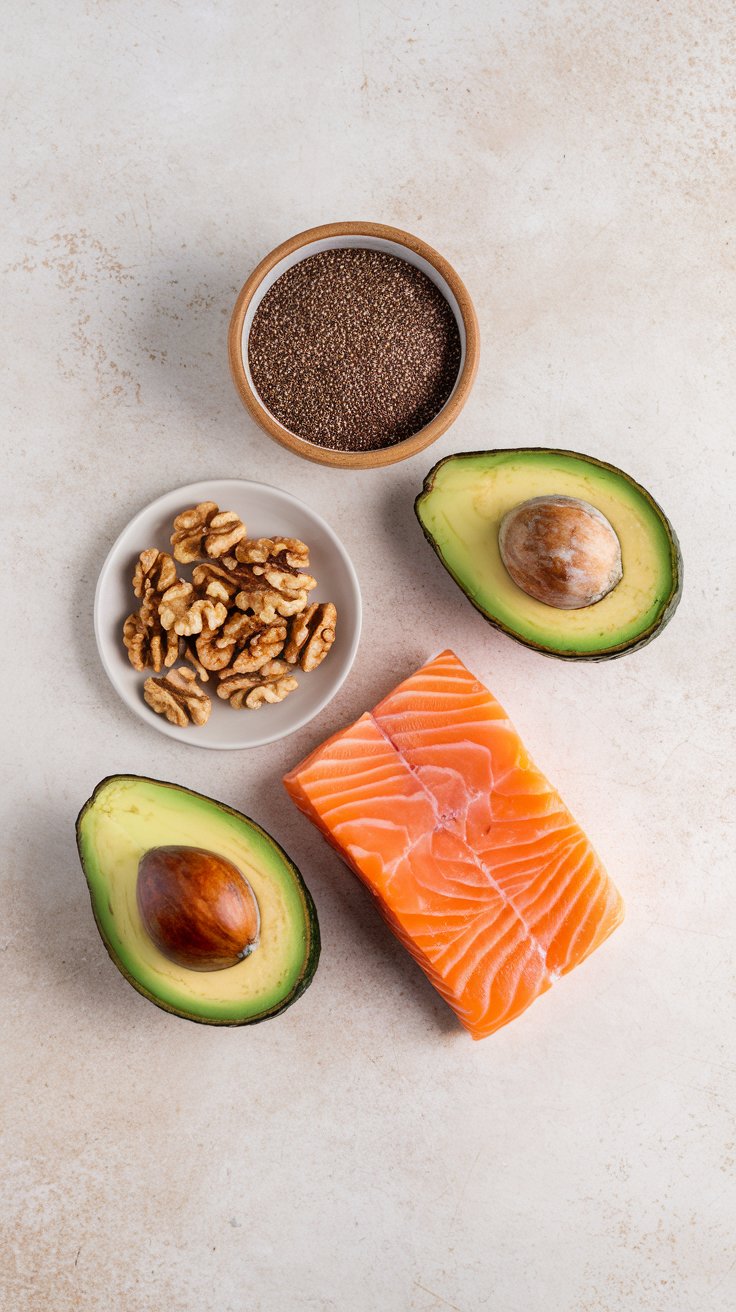
While fats are essential, not all fats are created equal. There’s a big difference between the healthy fats your gut loves and the unhealthy ones that can wreak havoc on your digestive system.
Here’s a quick guide on which fats to prioritize:
Healthy Fats:
- Monounsaturated Fats: Found in foods like olive oil, avocados, and almonds, these fats help reduce inflammation and support a healthy microbiome.
- Omega-3 Fatty Acids: Rich in fatty fish (salmon, sardines), flax seeds, chia seeds, and walnuts, omega-3s are anti-inflammatory and promote gut healing.
- Polyunsaturated Fats: These fats, found in seeds, nuts, and fish, are also beneficial for gut health and can reduce overall inflammation in the body.
Fats to Avoid:
- Trans Fats: Found in processed foods like baked goods, fast food, and margarine, these fats can disrupt gut health by promoting inflammation and damaging the gut lining.
- Excessive Saturated Fats: While some saturated fats (like those from coconut oil or grass-fed butter) are less harmful, overconsumption of processed animal fats can negatively impact your gut microbiome by encouraging the growth of harmful bacteria.
How to Include Healthy Fats in Your Diet
Adding healthy fats into your diet doesn’t have to be complicated. Here are a few simple ways to get started:
- Drizzle Olive Oil on Your Salad: Swap your regular dressing for a rich, antioxidant-packed olive oil.
- Snack on Nuts and Seeds: A handful of walnuts or chia seeds makes for a delicious, gut-friendly snack.
- Include Fatty Fish in Your Meals: Aim for at least two servings of fatty fish per week to get your omega-3 fix.
- Blend Avocado into Smoothies: Add half an avocado to your morning smoothie for a creamy texture and a boost of healthy fats.
Understanding The Role of Fats in Gut Health

When it comes to gut health, not all fats are bad—actually, many of them are incredibly beneficial.
By incorporating healthy fats into your diet, you’re not only supporting your gut microbiome, but you’re also boosting your ability to absorb nutrients and reduce inflammation.
Just remember, balance is key. Prioritize healthy fats like omega-3s, monounsaturated fats, and polyunsaturated fats while keeping processed and trans fats to a minimum.
Ready to boost your gut health with the power of healthy fats? Now that you understand the role of fats in gut health, you can give these tips a try and start to feel the difference.

